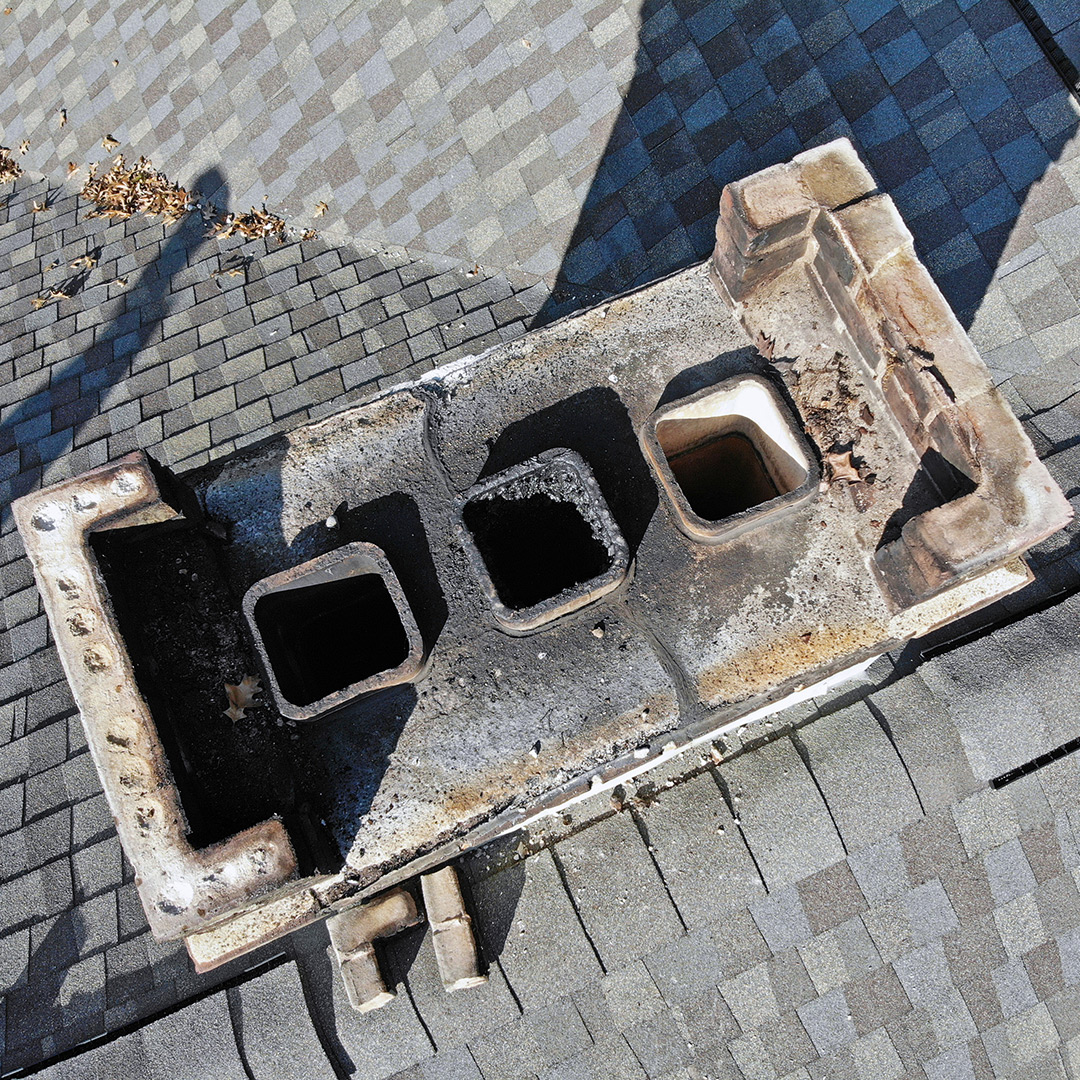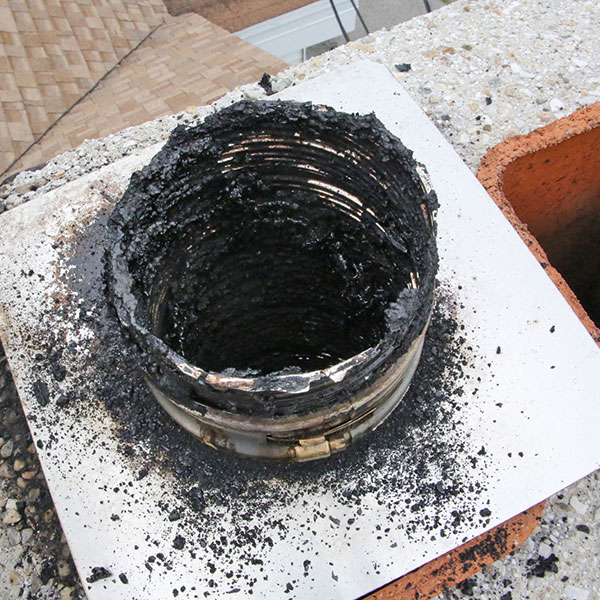Creosote Risks and How To Prevent Them
Imagine you and your family snuggled around a roaring fire in the living room. It’s a scene straight out of a Hallmark movie. But you may not know the lurking danger of creosote buildup in the chimney. Let’s look at creosote, why it’s so dangerous, and how to minimize the risks.
 What is Creosote?
What is Creosote?
Creosote is a natural byproduct of burning wood in a fireplace or stove. It’s a dark, sticky, and highly flammable substance that coats the inner wall of the chimney and builds.
When wood burns, it releases gases that rise through the chimney, which condense and solidify, forming creosote. Creosote forms in three stages: first, as a flaky deposit that you can easily brush away, then becomes a crunchy, tar-like coating, and finally, a thick glaze that requires professional removal.
Creosote Risks
So, creosote is a natural process from burning wood, but why is that bad? Well, as it builds up, it becomes increasingly flammable, putting you at risk of a chimney fire. The Chimney Safety Institute of America says that dirty chimneys can cause chimney fires. And while many fires go undetected, the damage they cause increases the risk of a catastrophic event down the road.
If that weren’t bad enough, creosote buildup presents other risks, including:
Reduced Efficiency
As the creosote layer thickens, it restricts airflow, like cholesterol clogging an artery. Reduced airflow causes your fireplace or stove to run less efficiently, making you use more fuel or rely more heavily on your furnace.
Health Hazards
Inhaling creosote particles can be harmful, leading to respiratory issues, and according to the Agency for Toxic Substances, long-term exposure can irritate the lungs and cause skin blistering.
Structural Damage
Creosote is corrosive, and repeated long-term exposure combined with high temperatures can damage your chimney liner or the masonry materials.
Odor
Lastly, if creosote is left to buildup in your chimney, it can cause a strong, smoky odor in your home, particularly during summer when the humidity is high.
How to Minimize the Risks
Now you know how bad creosote is, what can you do about it?
Regular Cleaning and Inspection
The most effective way to minimize the risks associated with creosote buildup is to get your chimney and fireplace cleaned by a certified professional once a year. Furthermore, the National Fire Protection Association also recommends annual inspections because, as mentioned, many chimney fires go undetected.
Burn the Right Wood
The wood you burn is crucial for an efficient fire and to minimize creosote buildup. Experts recommend always using dry, seasoned firewood. Green wood contains too much moisture, burns at a lower temperature, and produces more smoke, leading to increased creosote buildup. Burn hardwoods like oak or maple instead of softwoods like pine because they burn hotter and cleaner.
Use Your Fireplace Properly
Avoid overloading the fireplace because it can lead to higher temperatures than what your chimney can handle. And don’t use your fireplace like a garbage disposal, burning paper, furniture, or anything else you want to get rid of.
Install a Chimney Liner
In most areas, new chimneys must have liners because they’re safer. If your chimney doesn’t have one, installing a liner will improve efficiency and protect the masonry materials from the corrosive chemicals in creosote.
Improve Airflow
Good airflow is crucial to a healthy fire, and you can achieve this by keeping the flue clean and free from debris like twigs, birds’ nests, and leaves. If you don’t have a chimney cap, consider installing one to prevent blockages that impede airflow.

Call National Chimney Cleaners Inc.
At National Chimney Cleaners, our certified technicians will clean and inspect your chimney to ensure it’s safe and efficient. We take every precaution to protect your home, covering all surrounding areas, including the floors and furnishings, to keep your home clean.
We’re the most trusted chimney and fireplace professionals throughout Suffolk, Nassau County, New York, Long Island, Connecticut, and New Jersey.
Book your appointment today by calling 800–631–6177.

 What is Creosote?
What is Creosote?